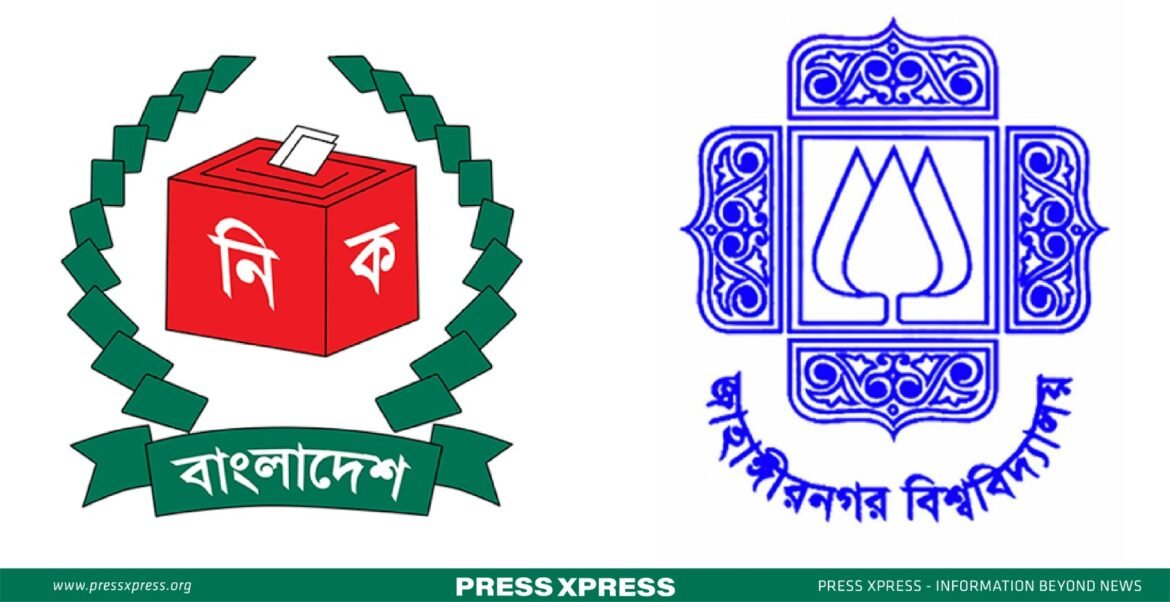500 educators from Bangabandhu Teachers Parishad at Jahangirnagar University have expressed their angst regarding ‘unwanted interference’ by an international group in the upcoming 12th National Assembly elections. This expression of concern comes a day after Chief Election Commissioner Kazi Habibul Awal unveiled the schedule for the elections.
You can also read: Bangladesh Ready for General Elections on January 7
According to the laws of Bangladesh, the Election Commission has already announced the schedule for the 12th parliamentary elections. Polling for 300 seats will be held on January 7, 2024.
Context
In the announcement of the schedule, the Chief Election Commissioner requested to take all measures to make the election free, fair, impartial, and participatory and overcome all worries, anxieties, and apprehensions to come to the polling stations fearlessly in a joyful atmosphere and freely exercise the precious right to vote.
However, before the election schedule was announced, US Ambassador to Bangladesh Peter Haas violated diplomatic norms by distributing a letter on behalf of the assistant foreign minister. Bangladesh’s three political parties have called for an unconditional dialogue.
It is noteworthy that the BNP-Jamaat rejected the call for unconditional dialogue, attaching a unilateral condition to the resignation of the government. The ambassador’s letter revived the old threat of implementing a ‘visa policy’ for those who obstruct the democratic process in Bangladesh.
Concern about US Interference
Professor Bashir Ahmed, the member secretary of Bangabandhu Teachers Parishad, conveyed a message welcoming the election schedule but expressed deep concern over the US Ambassador’s letter on the eve of the announcement. He emphasized the Election Commission’s efforts to ensure free and fair elections, contrasting it with what is seen as unethical interference.
Also recalling the historical incident, the statement said that the former US government had helped Pakistan with weapons of mass destruction during the Bangladesh War of Independence in 1971. This alignment persists in their current policy of providing logistical support to anti-independence forces. Despite the lack of public support for the BNP-Jamaat in the one-phase movement to overthrow the government, they continue to try to maintain violence under the guise of a movement fueled by the biased behavior of that particular country’s ambassador.
JU teachers call US Ambassador’s Action a Threat
The JU teachers, representing the Bangabandhu Teachers Council, assert the citizens’ right to freedom, democracy, and independent voting. They view the US ambassador’s action as a threat to the country’s sovereignty and dignity, urging everyone to support the Election Commission and the Government of Bangladesh in realizing the public’s desire for genuinely free and fair elections within the framework of an independent and sovereign state.
Dhaka University Teachers Also Raise Their Concern
In a parallel development, 825 teachers from various departments at Dhaka University had earlier conveyed their apprehension, citing unethical interference. They pointed to a letter from US Assistant Secretary of State Donald Lu to three political parties, urging unconditional dialogue. These educators argue that the United States, under the guise of democracy, has destabilized countries like Afghanistan, Syria, Iraq, and Libya. They allege that Bangladesh, despite its economic progress, is now being used to support anti-liberation forces.


